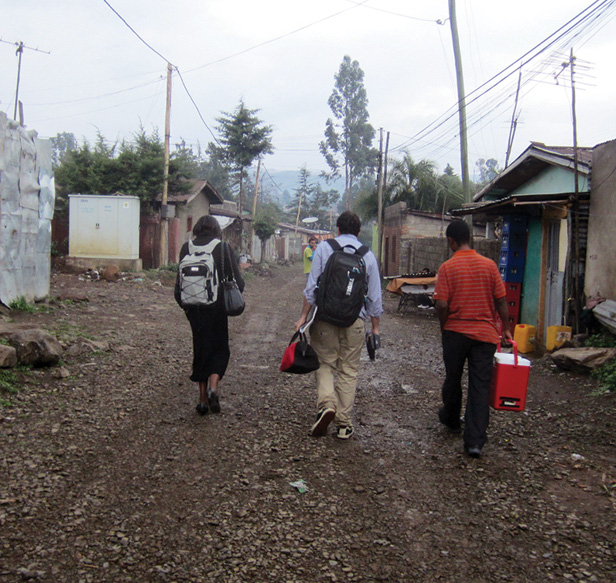Tuberculosis remains a stubbornly persistent killer in Africa, Asia, and South America, striking about nine million people a year. Multidrug-resistant strains are especially challenging to treat. Now CoolComply, a modified soft-drink cooler developed by researchers at MIT’s D-Lab, could help.
People with strains of TB that don’t respond to ordinary antibiotics require an 18-month course of treatment with drugs that must be taken several times a day and kept at a low temperature; if the drugs overheat, a gas that can make patients violently ill is released. But controlling the temperature is difficult in places where electricity is often unavailable.
José Gómez-Márquez, who runs D-Lab’s Little Devices Group, says the modified thermoelectric cooler monitors the temperature inside, transmitting an alarm if it gets too high. The device, which can run on solar cells, also records the date and time it’s opened to allow a single-dose packet to be dispensed—which helps monitor whether patients are taking all their doses, as they must do for the treatment to work. A built-in cell-phone transmitter sends the data to a central health facility.
Don’t settle for half the story.
Get paywall-free access to technology news for the here and now.
